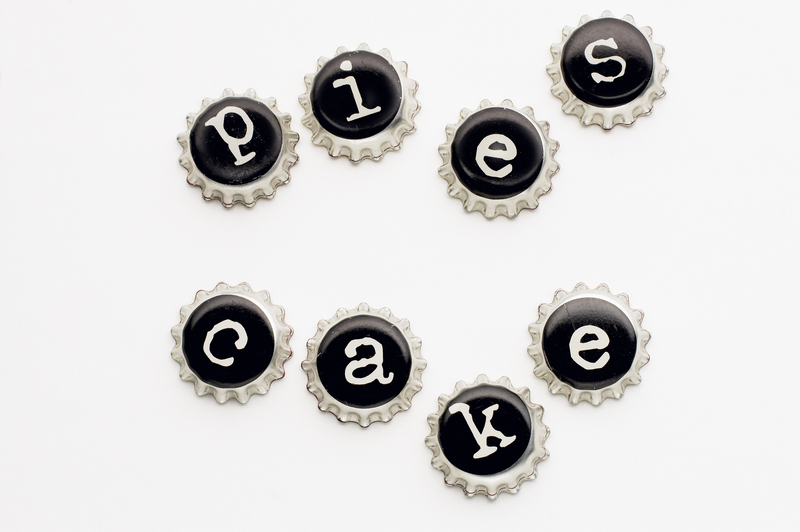Your Guide to Understanding Skip Hire Dos and Don'ts
Are you planning a garden overhaul, home renovation, or simply decluttering and need an efficient way to dispose of your waste? Skip hire can be a cost-effective, convenient solution. However, to maximize its benefits and avoid hassle, it's essential to know the dos and don'ts of hiring a skip.
Understanding Skip Hire: Why It Matters
Skip hire refers to the process of renting a large open-topped waste container designed for loading onto a special lorry. It's an essential service for many domestic and commercial clean-outs. However, proper usage not only ensures your project goes smoothly but also helps you comply with legal and environmental obligations. This comprehensive skip hire guide breaks down everything you need to know--from choosing the right skip to understanding prohibited materials--with actionable advice on what you should and shouldn't do.
Essential Skip Hire Dos for a Hassle-Free Experience
1. Choose the Right Size Skip
Selecting the correct skip size is crucial. Underestimating means you may have to hire another skip; overestimating can result in unnecessary costs. Skips come in a range of sizes from mini (2-yard) to large builders (12-yard) and even roll-on roll-off containers.
- Mini skips (2-3 yards): Perfect for small household projects or garden waste.
- Midi skips (4-6 yards): Suitable for bathroom or kitchen refits.
- Builders' skips (8 yards): Great for larger renovations and construction debris.
- Large skips (12+ yards): Ideal for bulky items and significant clearouts.
Top tip: Discuss your waste type and volume with your skip hire provider to get accurate recommendations.
2. Check Local Regulations and Obtain Permits
Placing a skip on public land (like a road or pavement) typically requires a permit from your local council. Failing to secure the right permits could result in fines or removal of your skip.
- Permits: Most skip hire companies can arrange permits for you for a fee.
- Placement: If possible, keep your skip on private property, like your driveway, to avoid additional bureaucracy.
3. Consider Your Waste Types
Not all waste is permitted in a general skip. Standard skips are for general household or building waste. Some items are restricted for safety and environmental reasons.
- Allowed items: Wood, soil, brick, metal, plastics, cardboard, old furniture.
- Hazardous waste: Never place asbestos, paint, chemicals, batteries, tyres, electrical items, or refrigerators in a regular skip.
If you have specialist waste, opt for a hazardous materials service or consult with your provider to arrange a separate collection.
4. Load Your Skip Efficiently
Proper skip loading maximizes space and safety. Break down bulky items before depositing them, and fill the skip evenly.
- Start with flat items: Place doors, boards, or sheets at the bottom.
- Heavier items next: Put soil, rubble, or heavy materials on top of the flat base.
- Finish with lighter, odd-shaped items: This helps fill gaps and keeps waste compact.
Never overfill your skip--materials sticking out above the rim are not only dangerous, but also illegal for transportation.
5. Protect Your Property
Skips, especially larger ones, can damage lawns, driveways, or pavements. Consider protective boards or ask the delivery driver for safe placement advice.
6. Arrange Collection in Advance
Early booking of skip removal can save you fees for exceeding the hire period. Always coordinate drop-off and pick-up with your provider.
Skip Hire Don'ts: Common Mistakes to Avoid
1. Don't Overfill Your Skip
An overfilled skip poses significant safety risks and is illegal to transport. Skip hire companies won't remove skips with waste above the top level, resulting in delays and potentially extra charges. Always keep your waste level with the rim.
2. Don't Place Prohibited Materials in the Skip
Restricted items spoil the entire load and can lead to fines. Avoid placing the following in a general skip:
- Asbestos
- Electrical appliances (fridges, freezers, TVs)
- Tyres
- Paint and solvents
- Batteries or fluorescent bulbs
- Gas cylinders or canisters
- Clinical or medical waste
- Plasterboard (in some regions, it must be disposed of separately)
If in doubt, ask your skip hire provider for a full list of accepted and banned items.
3. Don't Block Access or Exits
Avoid placing the skip where it will block driveways, public walkways, or access for emergency services. Your skip should be easy for the lorry to access for collection and drop-off.
4. Don't Burn Waste in the Skip
Lighting a fire in a skip is illegal and dangerous, often resulting in significant damage to the skip, the surrounding property, and the environment.
5. Don't Ignore Weight Limits
Every skip has a maximum weight load. While skips are robust, overloading can cause transport issues and lead to refusal of collection or additional charges.
Especially with heavy waste (like soil, concrete, and brick), stick to guidelines regarding how much each skip size can safely hold.

Expert Advice for Effective, Responsible Skip Hire
1. Separate Your Waste Efficiently
Many skip companies now encourage or require separation of materials to increase recycling rates. Creating piles for metal, wood, rubble, and general waste before loading ensures easier disposal and could save you money on recycling fees.
2. Consider Neighbours and the Community
- Notify your neighbours if your skip will be close to shared driveways, parking spaces, or their property.
- Avoid noisy loading early or late in the day to maintain good relations.
3. Use Skip Covers or Reflective Markings
- If placing the skip on a road, use reflective markings and night-time safety lamps to keep motorists and pedestrians safe.
- Use tarpaulins or skip covers to deter others from adding their rubbish and to prevent windblown waste.
4. Book With a Licensed Provider
Always use a reputable, licensed skip hire company. They will ensure your waste is disposed of legally and ethically. Ask your chosen provider for their Waste Carrier's License, and check online reviews.
5. Plan Your Skip Hire Timing
- Book your skip to arrive just as your project starts to avoid hiring it for longer than needed.
- Arrange for prompt removal to minimize disruption and risk of permit expiration.
6. Understand Costs and Terms
Transparently compare prices; beware of "too good to be true" deals that may hide extra costs or deliver poor service.
- Confirm what's included: delivery, collection, permit fees, recycling charges, VAT.
- Read the terms regarding overfilling, overloaded skips, and missed collections.
Frequently Asked Questions About Skip Hire Dos and Don'ts
How long can I keep a hired skip?
Most companies offer skips for 1-2 weeks, but hire periods can often be extended for a fee. Always confirm the hire period when booking.
What should I do if I have hazardous waste to dispose of?
Arrange specialist collection through your waste authority or a licensed hazardous waste handler. Never place hazardous materials in a general skip.
Can I fill my skip above the rim if the waste is lightweight?
No--all skips must be level-loaded for safe transport, regardless of the type or weight of waste.
Is it cheaper to dispose of waste myself?
This depends on the volume, type of waste, and your access to a suitable vehicle and recycling centre. For most renovation or construction projects, skip hire is often the cheapest and most convenient method.
Do I need a skip permit on my private driveway?
No permit is needed if your skip is entirely on private land. A permit is only required if the skip will obstruct a public highway or pavement.

The Environmental Role of Skip Hire: Do Your Bit!
Eco-friendly skip hire services sort and recover as much waste as possible, ensuring minimal landfill impact. Choose providers with transparent recycling practices. By using your skip responsibly, you:
- Help reduce illegal fly-tipping
- Encourage materials reuse and recycling
- Lower the carbon footprint of your renovation or clear-out
Be part of the solution--follow the dos and don'ts of skip hire to protect the environment and save money!
In Summary: Master the Skip Hire Dos and Don'ts
Skip hire is a brilliant solution for efficient rubbish removal during construction, renovations, or major clean-ups. Remember to plan carefully, load responsibly, and work with a reputable provider to keep things safe, legal, and cost-effective. By following this guide to skip hire dos and don'ts, you'll avoid the most common pitfalls and enjoy a smooth, stress-free experience.
Your skip hire journey doesn't need to be complicated--use this advice, and you'll turn your next project into a model of effective waste management!
Ready to book your skip? Choose a reputable provider, specify your waste type, and follow the skip hire dos and don'ts--for a clean, compliant, and eco-friendly outcome!